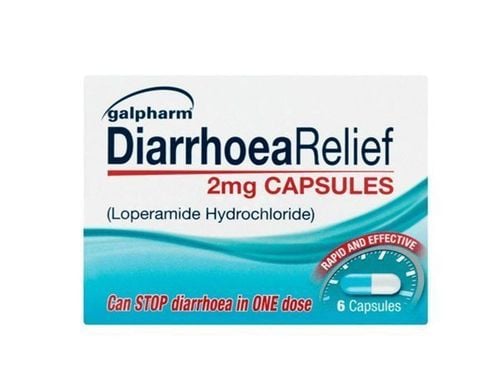This is an automatically translated article.
Bethanechol is used to treat gastroesophageal reflux, acute postoperative, postpartum, and neurogenic urinary retention. The following content will describe more clearly the effects, side effects and precautions when using Bethanechol.
1. Effect and mechanism of action of the drug Bethanechol
Bethanechol is a drug used to treat acute urinary retention after surgery, postpartum and neurogenic, gastroesophageal reflux disease. Bethanecol is a stimulant of muscarinic and cholinergic receptors on smooth muscle of the gastrointestinal tract or bladder, resulting in increased esophageal and ureteral motility, increased pancreatic and gastrointestinal secretions, and spasms. bladder muscle.
2. Notes when using the drug Bethanechol
Follow all instructions on the medicine label and packaging. Tell your doctor and pharmacist about all your personal medical conditions, allergies and medications you are taking.
Do not take Bethanechol if you are allergic to any of the active ingredients in it or have the following medical conditions:
Slow heart rate or very low blood pressure; Coronary artery disease ; Asthma; Overactive thyroid gland; Epilepsy or other seizure disorder; An active ulcer in the stomach or intestines; Blockage in the gastrointestinal tract of the stomach or intestines; Peritonitis ; Bladder obstruction or urinary tract problems; Parkinson disease ; If you have recently had bladder or bowel surgery. Tell your doctor if you have ever:
Have problems urinating or a bladder infection; Stomach or bowel disorders; Heart problems; Low blood pressure ; Thyroid disorders; Breathing problems;
3. Contraindications to the use of Bethanechol
Pregnant and lactating women. Patients under 18 years of age.
4. Dealing with missed dose or drug overdose
When you miss a dose of Bethanechol, take it as soon as you remember. However, the missed dose should be skipped if it is almost time for the next dose. Do not take 2 doses at the same time.
Bethanechol overdose symptoms may include drooling, upset stomach, nausea, vomiting, or feeling hot. Notify the prescribing doctor or take the patient to the nearest medical facility for appropriate treatment.
5. Side effects of Bethanechol
Get emergency medical help if the person taking the medicine has the following signs:
Allergic reactions such as hives, difficulty breathing; swelling of the face, lips, tongue, or throat. Slow heart rate. Faint. Wheezing, chest tightness, shortness of breath. Other common side effects of Bethanechol include:
Frequent urination; Stomach cramps, nausea, diarrhea; Ợ gas, increased salivation; Headache, dizziness; Sweating, flushing (sudden heat, redness, or tingling sensation); general ill feeling; Tears, changes in vision.
6. How to use Bethanechol
Bethanechol dosage information:
Initial dose: 5 to 10 mg orally once to achieve the minimum effective dose. Maintenance dose: 10 to 50 mg orally 3 to 4 times a day. Effects of Bethanechol can appear within 30 minutes and are usually maximum 60 to 90 minutes and last about 1 hour. If the drug reaction causes health problems, the effects of this medicine can be promptly removed with the medicine Atropine.
7. Drug interactions
Other drugs may affect Bethanechol, including prescription and over-the-counter medicines, vitamins, herbal products. Tell your doctor about all the medicines you are taking or are taking.
Possible pharmacological interactions such as:
Quinidine and procainamide may antagonize cholinergic effects, especially cholinesterase inhibitors. When administered to patients receiving sympathomimetic agents, severe hypotension may occur with symptoms of abdominal pain. Above is information about the uses, dosage and precautions when using Bethanechol. To ensure the safety of your health and maximize the effectiveness of treatment, you need to take the medicine exactly as directed by your doctor.
Please dial HOTLINE for more information or register for an appointment HERE. Download MyVinmec app to make appointments faster and to manage your bookings easily.













